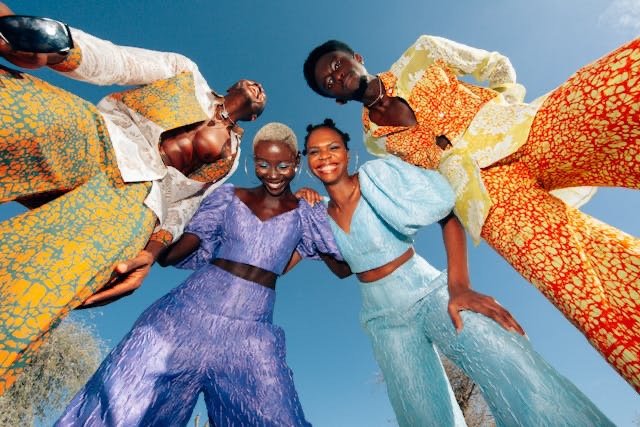The Interplay of Fashion and Confidence: How Style Shapes Self-Perception
Fashion is far more than just clothing; it's a powerful form of self-expression and a vital element in the construction of personal identity. For many, the relationship between fashion and confidence is intricately woven, with the way we dress significantly influencing how we feel about ourselves and how we are perceived by others.
august 28. Written by Ryan Packer Fashion as a Form of Self-Expression
At its core, fashion is a means of communicating who we are without saying a word. The colors we choose, the styles we gravitate toward, and even the brands we wear all send messages about our personalities, tastes, and even our moods. For instance, someone who feels bold and daring might opt for a bright red dress or an edgy leather jacket, while someone who feels calm and centered might choose soft pastels or minimalist silhouettes. By carefully curating our wardrobes, we create a visual narrative that reflects our inner selves.
This form of self-expression is closely tied to confidence. When we wear something that feels true to who we are, we project authenticity, which naturally boosts our self-esteem. Conversely, when we wear something that doesn’t align with our sense of self, it can lead to feelings of discomfort or self-consciousness. This is why finding a personal style that resonates with our identity is crucial for building and maintaining confidence.
The Psychological Impact of Clothing
The connection between fashion and confidence goes beyond mere self-expression; it also taps into the psychology of clothing. Research has shown that what we wear can directly influence our emotions and behaviors. This phenomenon, often referred to as "enclothed cognition," suggests that the symbolic meaning of our clothing, combined with the physical experience of wearing it, can affect our mental state.
For example, putting on a well-tailored suit can make us feel more powerful and assertive, which in turn can lead to more confident behavior. Similarly, wearing athletic gear might make us feel more motivated to exercise, while a cozy sweater could induce feelings of comfort and relaxation. In each case, the clothing doesn’t just reflect our current state of mind; it actively shapes it.
Fashion as a Confidence Booster
Fashion has the power to transform our self-perception, often acting as a confidence booster when we need it most. This is especially true in situations where we want to make a strong impression, such as a job interview, a first date, or a public speaking event. In these moments, choosing the right outfit can provide a psychological edge, helping us to feel more in control and capable.
Moreover, the act of dressing up can be an empowering ritual in itself. Taking the time to choose an outfit, do our hair, and apply makeup can serve as a form of self-care, reminding us of our worth and helping us to face the day with a renewed sense of purpose. This is why so many people find solace in fashion during difficult times—it becomes a way to reclaim a sense of agency and reinforce their self-worth.
The Role of Fashion Icons and Trends
Fashion icons and trends also play a significant role in the relationship between fashion and confidence. Seeing someone we admire wear a particular style can inspire us to try it ourselves, often with the hope that we’ll feel just as confident and stylish. This is the essence of the “if they can do it, so can I” mentality that drives much of the fashion industry.
However, it’s important to remember that while trends can be fun to follow, true confidence comes from wearing what makes you feel good, not just what’s popular. Fashion icons become icons not because they slavishly follow trends, but because they have a distinct sense of style that resonates with their personal identity. Emulating this approach—prioritizing personal style over fleeting trends—can lead to a more genuine and lasting sense of confidence.
Embracing the Power of Fashion
The relationship between fashion and confidence is a dynamic interplay of self-expression, psychology, and personal empowerment. By understanding and harnessing this relationship, we can use fashion as a tool to not only enhance our appearance but also to bolster our self-esteem and navigate the world with greater confidence.
Ultimately, the key is to embrace a style that feels authentic and true to who we are. When we do this, fashion becomes more than just clothing—it becomes a powerful expression of self-love and confidence, allowing us to step into each day with our heads held high and our spirits lifted.


